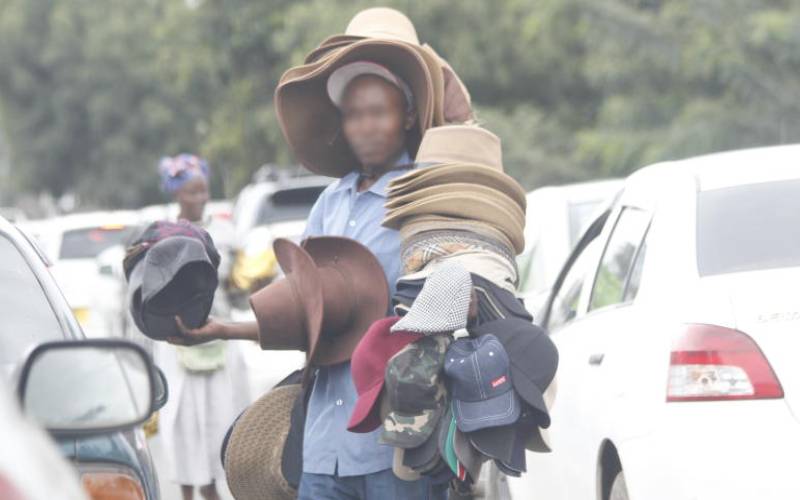
Hawkers will be required to pay Sh500 monthly to operate in the central business district (CBD).
On top of that, they will have to display their operating licences should a new law be adopted by the county assembly.
These are among a raft of charges proposed for hawkers and street vendors, by the Nairobi City County Trade Licensing Bill, 2018, which is currently before the county assembly. The bill is in its second reading.
The bill stipulates that hawkers be made to pay Sh500 if operating within the CDB and a Sh30 daily fee to be imposed on those operating outside the CBD.
Traders using vehicles to display goods have also not be spared by the bill, which seeks to compel them to pay an additional tax of Sh10,000 annually.
Hawkers displaying their goods on vehicles will be required to pay an annual fee of Sh15,000 up from Sh5,000.
To this effect, the proposed bill calls for the formation of a trade licensing department, which will be charged with issuing licences, advising the Trade executive on classification of businesses and carrying out routine inspections on compliance and policing compliance.
The bill sponsored by Kariobangi South MCA Robert Mbatia further states that the licence of operation will bear the details the goods being sold, location of operation and the working hours of traders as authorised by the county.
“No person shall act as a hawker unless he or she is in possession of a valid hawker’s licence unless they operate businesses exempted from licensing. A hawker shall be required to produce his or her licence on demand for inspection by the enforcement officer at all times,” reads the bill in part.
Running battles
But in the same bill, small-scale traders such as shoeshiners, street vendors and cleaners will be required to part with Sh2,500 yearly in order to ply their trade. This will be a relief to the traders who currently pay Sh5,000 annually.
Hawkers in Nairobi have been blamed for causing congestion and disorder on the streets, as well as blocking entrances to other businesses.
Rather than pay the requisite fees, hawkers prefer to engage city askaris in cat-and-mouse games which often end up in running battles between them.
City Hall’s latest attempt to curb the hawker menace and generate revenue from the traders was in January this year; when Governor Mike Sonko and the Ministry of Transport proposed three car-free days in a week.
Harambee Avenue, City Hall Way, Taifa Road and Mama Ngina Street were to remain closed for hawkers to sell their wares. City Hall was targeting to collect Sh39.5 million daily from the over 100,000 hawkers.
In 2017, Governor Sonko announced that the hawkers would be relocated to Mwariru Market, which is currently under construction.
 The Standard Group Plc is a multi-media organization with investments in media
platforms spanning newspaper print operations, television, radio broadcasting,
digital and online services. The Standard Group is recognized as a leading
multi-media house in Kenya with a key influence in matters of national and
international interest.
The Standard Group Plc is a multi-media organization with investments in media
platforms spanning newspaper print operations, television, radio broadcasting,
digital and online services. The Standard Group is recognized as a leading
multi-media house in Kenya with a key influence in matters of national and
international interest.
 The Standard Group Plc is a multi-media organization with investments in media
platforms spanning newspaper print operations, television, radio broadcasting,
digital and online services. The Standard Group is recognized as a leading
multi-media house in Kenya with a key influence in matters of national and
international interest.
The Standard Group Plc is a multi-media organization with investments in media
platforms spanning newspaper print operations, television, radio broadcasting,
digital and online services. The Standard Group is recognized as a leading
multi-media house in Kenya with a key influence in matters of national and
international interest.










